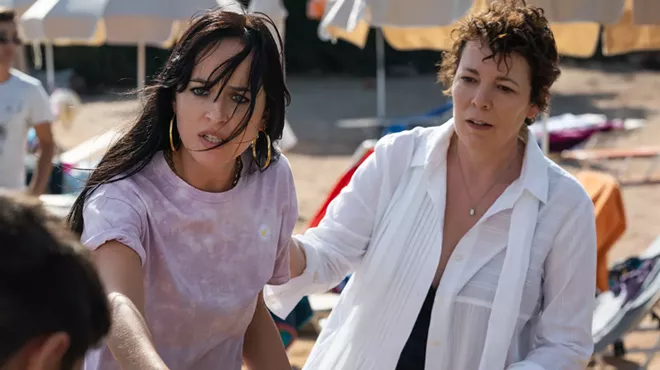"If someone says it's raining and another person says it's dry, it's not your job to quote them both," goes a quote often attributed to journalism professor Jonathan Foster. "Your job is to look out of the f—-ing window and find out which is true."
The point, of course, is that journalists aren't just supposed to be stenographers who write down what both sides are saying — certainly not on issues like climate change or vaccines, or who won the 2020 election — they're supposed to report the objective reality.
It's the sort of quote that felt like wisdom the first time I heard it, but increasingly irritates me every time I hear it repeated. It's like an Aaron Sorkin-smug version of smart, as if there were always a right answer, and all it takes is the courage to turn your head and glance out the glass.
But that thinking can also quickly lead to the kind of journalism that trades nuance for arrogance, curiosity for dogma.
Say you look out the window, see it isn't raining and file a story: "FACTCHECK: Rain Alarmists Claim Rain Without Any Evidence."
But then you step outside and your ankles get soaked, because it only just stopped raining a minute earlier.
Or maybe it wasn't raining where you are, but it was where the other person was. Or maybe it's snowing. Maybe it's hailing. Maybe it's dumping tons of volcanic ash — has the health care system reported any significant increase in pneumonoultramicroscopicsilicovolcanoconiosis? Maybe it's raining men and raining cats and dogs, and some of the men are biting the dogs, and that's the real story.
"Is it raining" is where your reporting should begin, not end.
Is the rain falling equally on the just and the unjust? If the city's public works department is blaming their skyrocketing overtime on the big rainstorm, is that the real issue? Or is it poor management?
Say one side is blaming flooding after a storm on climate change and the other is blaming poor river-management techniques. Maybe both are right.
Report that, of course, and you'll have a chorus of critics on Twitter slamming you for your anti-precipitation bias, or charging that writing about how it's raining during the Biden administration is a "both-sides" distraction from the real downpour that happened under President Trump.
What if the data shows the rain is falling twice as often, but a drizzle instead of a downpour? So more people are getting wet, but most of them aren't getting soaked. But the sheer numbers are still really testing the capacity of the dryers in local laundromats. What if the governor starts firing state employees who absurdly claim their faith prohibits rain slickers?
Vaccines save lives; the climate is changing; Biden won the election. But those facts don't tell you if vaccine mandates are worth staff shortages, how effectively carbon taxes fight climate change, or how social media companies should deal with disinformation.
Yes, journalism is about reporting truth and capturing reality. But reality is a pointillist painting of a billion truths, constantly changing and falling around us like, well, rain.
We have to do more than look out the window. Our job is to walk out the door and soak it all in — the stats, the facts, the claims, the evidence, the personalities, the history, the conflict — and then wring out the complicated mess into something coherent enough to serve our readers.
And doing that well typically means quoting people from all sides — without carrying water for any of them. ♦


